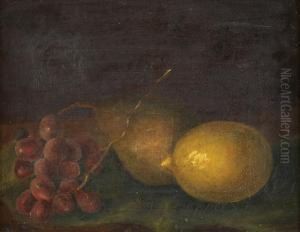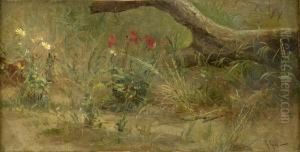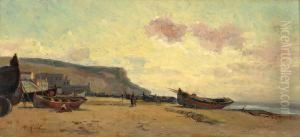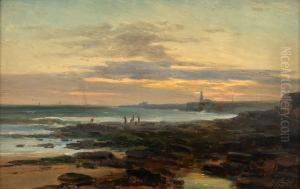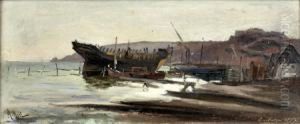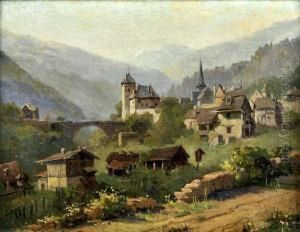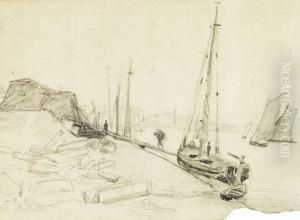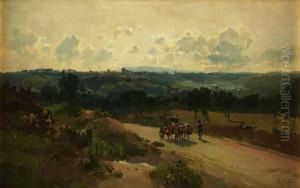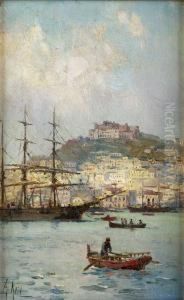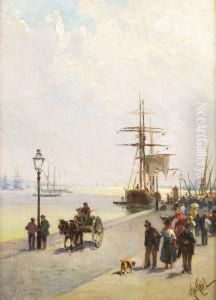Alfredo Keil Paintings
Alfredo Keil was a Portuguese romantic composer, painter, and collector who is best known for composing the music of the Portuguese national anthem, 'A Portuguesa.' Born on July 3, 1850, in Lisbon, Portugal, Keil was raised in a culturally vibrant environment that nurtured his artistic talents. He was initially interested in painting and pursued his studies in art in Lisbon and later in several other European cities, including Paris and Munich.
Keil's artistic pursuits were not limited to painting; he was also deeply involved in music and composed numerous works that contributed to the Portuguese musical scene. His compositions included operas, orchestral works, chamber music, and songs. Among his operatic works, 'Irene' is one of the most notable. However, it was the composition of 'A Portuguesa' in 1890, in response to the British ultimatum to Portugal regarding African territories, that immortalized him in Portuguese cultural history. The song quickly became a symbol of national pride and resistance and was adopted as the national anthem in 1910 after the establishment of the Portuguese Republic.
In addition to his musical legacy, Keil was an accomplished painter. His style was influenced by the romanticism that was prevalent in Europe at the time, and he produced a significant number of works over his lifetime. Keil's artistic expression extended to collecting as well; he amassed a collection of artwork that reflected his wide-ranging interests in the arts.
Despite his contributions to the cultural life of Portugal, Keil's work faded somewhat into the background after his death on October 4, 1907, in Hamburg, Germany. Nevertheless, his impact on Portuguese culture, particularly through the national anthem, has ensured that his name remains well-regarded in the annals of Portuguese history. Keil's life and work are remembered as embodying the spirit of Portuguese romanticism and nationalism at the turn of the 20th century.

